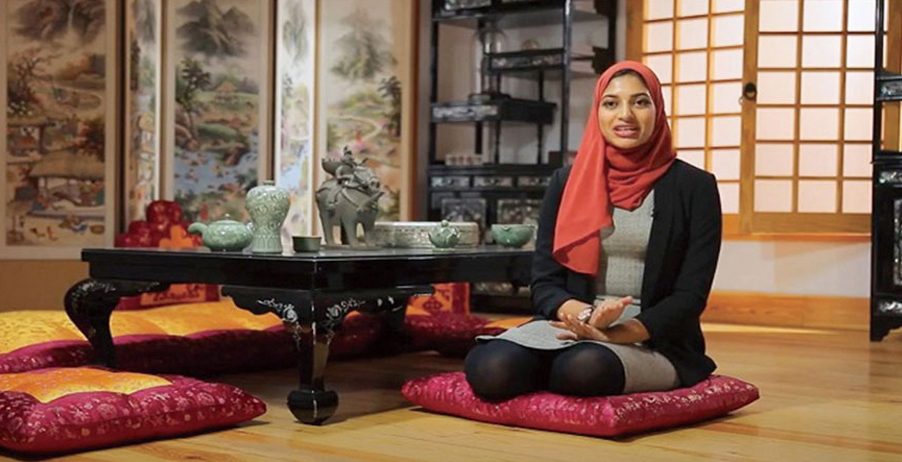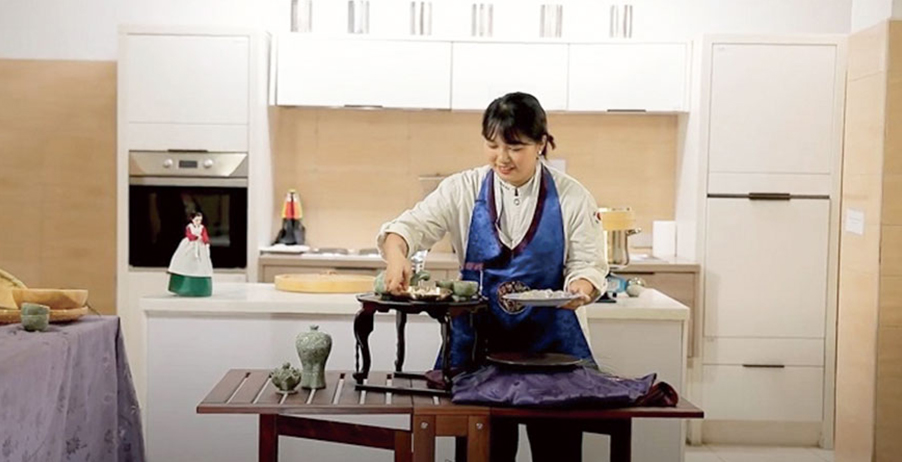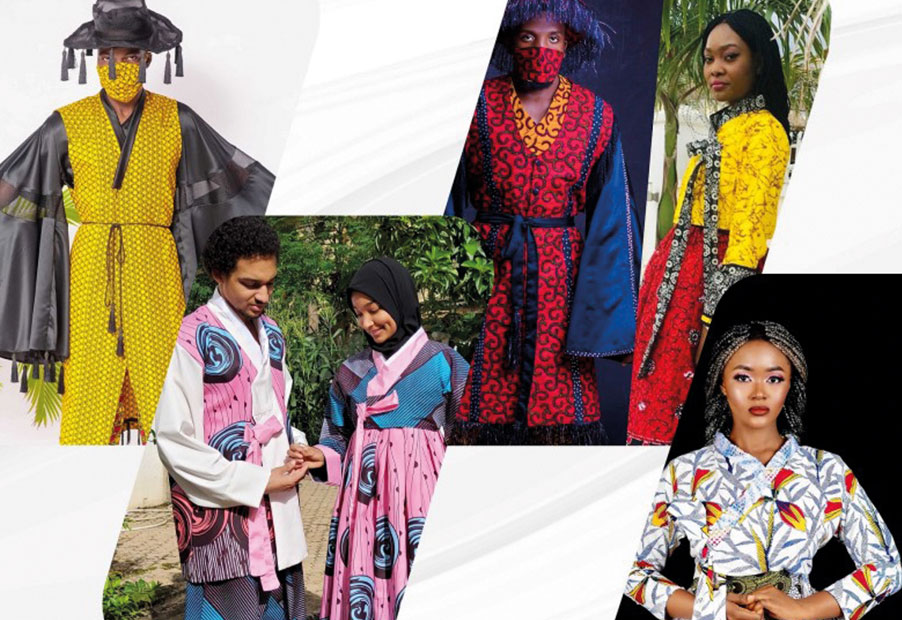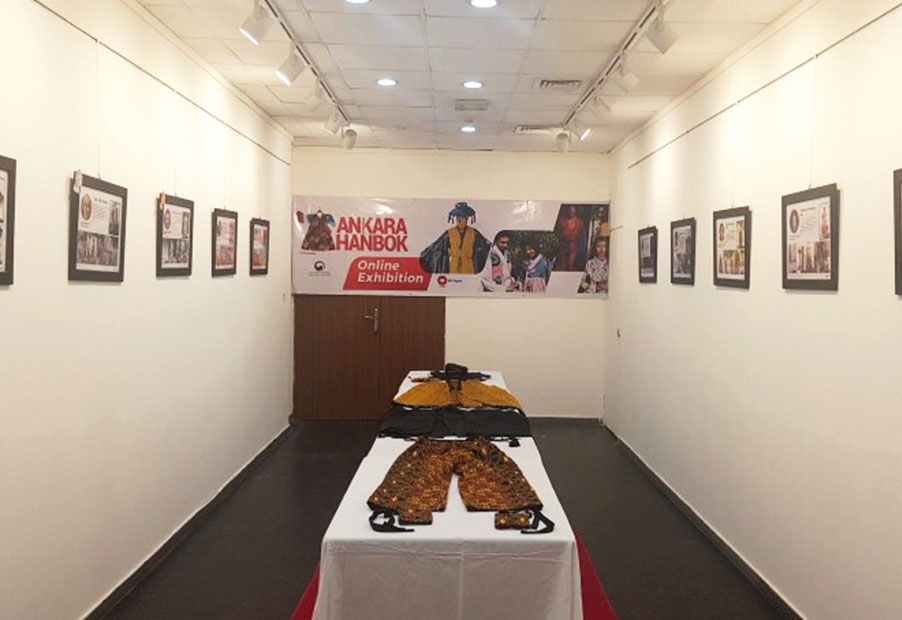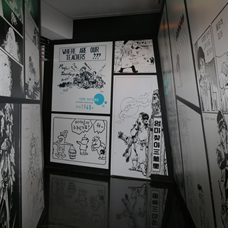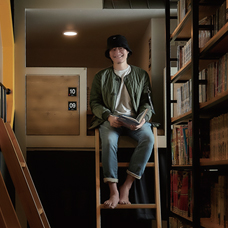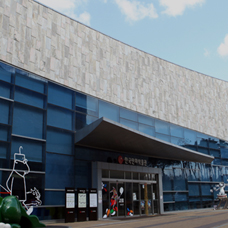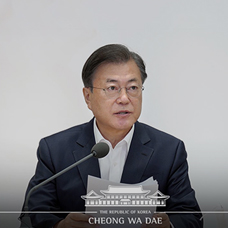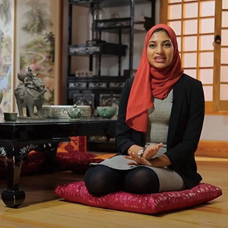Global Korea I
Chuseok Celebrations in Egypt
 Cairo, Egypt
Cairo, Egypt
The Korean Cultural Center (KCC) in Egypt featured on its YouTube channel content related to Chuseok (Korean Thanksgiving) including a basic introduction of the holiday, informative recipes and Korean-language lessons focused on Chuseok greetings, plus folk and traditional performances.
Parts of the content were provided by institutions like the National Gugak Center (like the ganggangsullae dance video) and King Sejong Institute, which teaches Korean. The KCC also released on its channel original content that it produced including a songpyeon (half moon-shaped rice cake) cooking video featuring a Korean chef.
Global Korea I
Fusing Traditional Attire
 Abuja, Nigeria
Abuja, Nigeria
The KCC in Nigeria on its YouTube channel hosted an online exhibition (https://www.youtube.com/watch?v=pwttHdqUb-c) of Hanbok (traditional Korean clothing) made from the African fabric Ankara. Ten selections were featured from a pool of about 50 Nigeria-based applicants, all of whom utilized Ankara garments to create their own Hanbok.
Ankara is produced and widely used in West Africa, especially in Nigeria. As well as being handmade through advanced techniques, Ankara is an integral part of the Nigerian identity, representing textures and hues as diverse as the number of ethnic groups comprising the nation.
The contestants submitted their creations between January and July this year, and the onstage appearance of selected pieces received great enthusiasm. Both Nigerians and municipal or institutional administrators said they found the event enriching, with many saying they were familiar with Hanbok thanks to watching sageuk (historical K-dramas) like the hit “Jewel in the Palace.”
Participant Natacha Umar said, “The popping visuals of the traditional Nigerian garment nicely complement the graceful elegance of Hanbok’s style. The combination of these signature traits creates a great fashion brand.”
Global Korea II
‘Parasite’ Critiques Korean Society
Written & Illustrated by Honorary Reporter• Adriana Castilblanc from Mexico
The Oscar-winning film “Parasite” depicts the lives of two families ― the Parks and the Kims ― in a society teeming with inequality and everyday struggle. The rich Parks are shown as a wealthy, upper-class family with an almost dream-like life, while the poor Kims are presented as a clan fraught with uncertainty and desperation who live hand-to-mouth.
While the film’s main purpose is to portray the contrast between the exclusive upper class and the more plentiful lower-income class, the symbols used are a fascinating topic. For example, the Kims are compared to a plague that gradually infests the Parks, and this is hinted at in the beginning when the Kims’ father Kim Ki-taek throws a cockroach to the ground after foreseeing a plague in their house (similar to what happens to his family in a couple of months).
Another is how the Kims show what they’re capable of to survive, like using a fabricated diploma from the prestigious Yonsei University to get a job at the Park home. And during the climax, the flood is used to symbolize the end of the Kims’ glory and scam as their half-basement home is gradually filled with water. This symbolizes how this family eventually started drowning in their own lies.
Another recurring theme is the strategy of “fake it till you make it” to succeed and, to an even greater extent, as a revelation of something that happens daily. This strategy is used by the Kims to get a job and infiltrate the Park home, yet also applies to the Park couple, whose marriage is based on codependency and secrets, not to mention parental absence and lack of communication.
One important question is how guilty should the Kims feel since everyone around them pretends to be something else to survive in society. The housekeeper Moon Gwang is depicted as a near-perfect person, acting as a substitute mother to the Parks’ children. Yet even she has a secret ― hiding her sick husband in the basement ― which shows how even she has had to fake things for the sake of her spouse.
“Parasite” is a social critique of Korean society, in which the stereotypes of a poor but united family and that of a wealthy but dysfunctional family remain visible, as well as how everybody in society plays a role based on their status, adding to the formula of intangible divisions between social strata.
This becomes evident in the scene where Ki-taek decides to stay in the bunker while being chased by police. The bunker is where he belongs because of what he is. Even if he tries to move up the ladder toward a higher social class, certain qualities like his body odor will perpetually get in his way. He will always represent the plague of cockroaches on a table, a parasite that sneaks into places to persist amid life.
But after all, aren’t we all parasites trying to do better in life?


